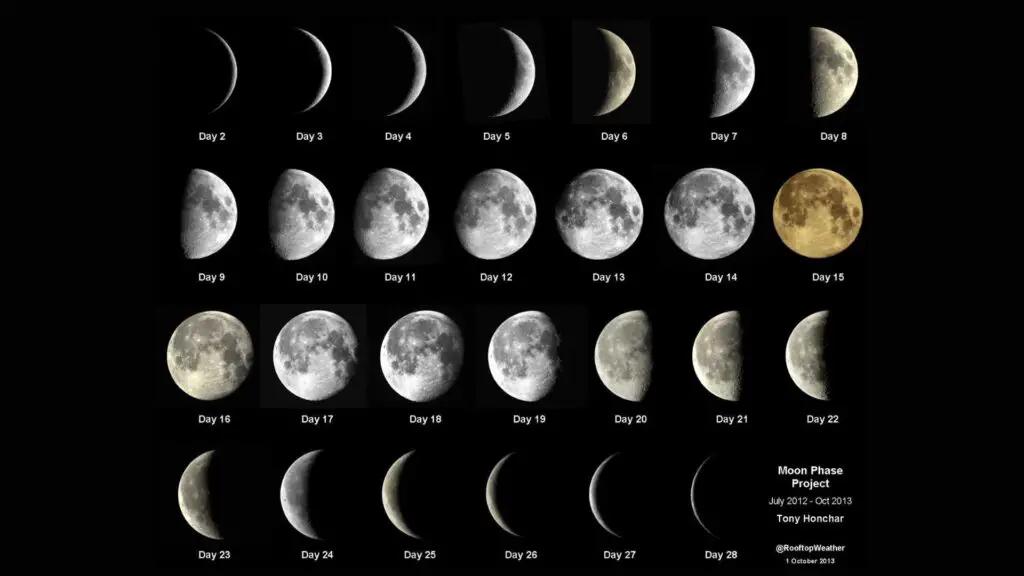Fasting on the White Days in Islam: Have you attempted a voluntary fast on Thursday or Monday? Are you aware that on White days, you can fast as well? Which days are White Days in Islam, do you know? Nowadays, many people frequently forget about the custom of fasting on the White days (Ayyam al-Bid). In an effort to ensure that this lovely prophetic practice is not overlooked, this post aims to reintroduce it. Let’s learn about the White Days in Islam.
What are the White days in Islam?
These three days that fall on the 13th, 14th, and 15th day of every Islamic month (Lunar Month) are called the White days, or ‘Al-Ayyam al-Bid’ in Arabic. Because of the full moon’s intense light during these three days, they are known as “white days.” Therefore, the White days are symbolized by the brilliant full moon at night.
According to science, the Islamic month starts with a new moon and progresses from a crescent moon over the course of 12 nights to a full moon, which is when it shines the brightest for three days in a row. After that, the moon will gradually disappear until it reverts to a crescent and the cycle is resumed. To express gratitude to Allah s.w.t., the Messenger of Allah s.a.w. and his companions (may Allah be pleased with them} fasted on the White days.
Every Islamic month has these three days when Muslims are advised to fast, with the exception of the thirteenth of Zulhijjah, when Muslims are not allowed to fast on the days of Tashriq.
As related by Abu Hurairah r.a., the Prophet Muhammad (SAW) practiced the fasting of White days and encouraged his companions (r.a.) to fast along with him. Prophet (SAW) advised him to do 3 things, that are;
صِيَامِ ثَلاَثَةِ أَيَّامٍ مِنْ كُلِّ شَهْرٍ، وَرَكْعَتَي الضُّحَى، وَأَنْ أُوتِرَ قَبْلَ أَنْ أَنَامَ
“Fasting for three days every month, performing two rak’ahs of Dhuha prayers and praying witr before sleep.”
(Sahih Al-Bukhari)
Why are these three White days special?

The moon’s monthly phases are depicted in the figure above. The moon is a crescent at first, grows to a full moon, then diminishes again to a crescent. The full, round moon occurs on the three middle nights of the lunar month. The term comes from the fact that these are the brightest nights during that month! The Prophet (saw) fasted on these days partly because of how bright these nights were. It served as a means of thanking Allah for illuminating the gloomy nights. Since electricity had not yet been established during the time of the Prophet Muhammad (saw), this would have been very poignant.
What are the benefits of fasting on the White days?
As stated by Abdullah Bin Amr Bin Al-As r.a., the benefits of fasting during the full moon are comparable to those of fasting for the entire month. The Messenger of Allah s.a.w. reportedly said:
صَوْمُ ثَلاَثَةِ أَيَّامٍ صَوْمُ الدَّهْرِ كُلِّهِ
“Observing fasting on three days of every month is equivalent to fasting the whole year”
(Sahih Al-Bukhari)
According to Mu’adhah Al-‘Adawiyah r.a., who asked the Prophet’s wife Aishah r.a., the Prophet Muhammad s.a.w. himself never failed to keep the white days fasting.
أَكَانَ رسولُ اللَّهِ صلَّى اللَّهُ عليهِ وسلَّمَ يصومُ ثلاثةَ أيَّامٍ مِن كلِّ شهرٍ قالت نعَم
“Did the Messenger of Allah s.a.w. observed three days of fasting for every month?”, She replied: “Yes”
(Sunan At-Tirmizi)
Thus, we will reap great benefits if we fast on White days, just as the Prophet Muhammad s.a.w. taught us. Furthermore, according to a Hadith Qudsi, Allah s.w.t. alone is aware of the magnificence of the benefits of fasting:
كُلُّ عَمَلِ ابْنِ آدَمَ له، إلَّا الصِّيَامَ؛ فإنَّه لي، وأَنَا أجْزِي به
“Every deed of the son of Adam is for him, except fasting. It is for me, and I will reward it“
(Sahih Al-Bukhari)
How do we observe the Fasting on White Day?
In order to start fasting on white days, one must first make the following niyyah (intention) and then observe fasting from sunrise to sunset as usual:
نَوَيتُ صَومَ أَيَّامِ البِيض سُنَّةً لله تَعَالَى
Nawaytu Sauma Ayyamil Bidh Sunnatan Lillahi Taa’la
I intended to fast on the white days as a Sunnah for Allah Almighty
You can also use the language you understand to communicate the intention from your heart. Try fasting again the next month once you’ve tried it on White Days, and insha’Allah, it will become a habit to you as the Messenger of Allah s.a.w. has the practice of doing so voluntary fasting.
Current and Upcoming White Days (Ayyam al-Bid):
The three white days of Jumada Al-Akhirah 1445:
- – Jumada II 13th | 26/12/2023, Tuesday
- – Jumada II 14th | 27/12/2023, Wednesday
- – Jumada II 15th | 28/12/2023, Thursday
The three white days of Rajab 1445:
- – Rajab 13th | 25/01/2024, Thursday
- – Rajab 14th | 26/01/2024, Friday
- – Rajab 15th | 27/01/2024, Saturday
The three white days of Shaaban 1445:
- – Shaaban 13th | 23/02/2024, Friday
- – Shaaban 14th | 24/02/2024, Saturday
- – Shaaban 15th | 25/02/2024, Sunday
The three white days for Shawwal 1445:
- – Shawwal 13th | 22/04/2024, Monday
- – Shawwal 14th | 23/04/2024, Tuesday
- – Shawwal 15th | 24/04/2024, Wednesday
Reviving the Sunnah
Few Muslims know that the Prophet (saw) originally gave his followers instructions to fast on the Three Bright Days. As such, it is a Sunnah that has been disregarded and forgotten. You can get the benefits of revitalizing the Sunnah by fasting yourself and motivating those near you to fast as well!
The Messenger of Allah (saw) said, ’Whoever revives a Sunnah of mine, which people then act upon, will have a reward equivalent to that of those who act upon it, without that detracting from their reward in the slightest. …′ [Sunan Ibn Majah 209]
Together, let us bring this long-forgotten Sunnah of Fasting on White Days in Islam, back to our lives and put it into practice, following the lead of the Prophet Muhammad s.a.w. in seeking the love and blessings of Allah s.w.t. and reaping rewards along the way.
He (saw) also said, ’…and whoever does not follow my sunnah has nothing to do with me…’. [Sunan Ibn Majah 1846]
We ask Allah to provide us the ability to restore the Sunnah of the Prophet and to be among his people, Ameen!
And Allah knows best.
This was all about Fasting on the White Days in Islam (Ayyam al-Bid). Read more Islamic Blogs or Follow us on social media for daily Islamic reminders.






